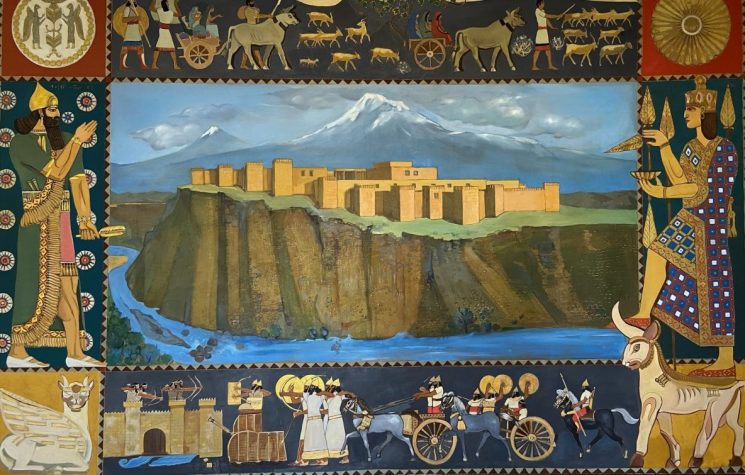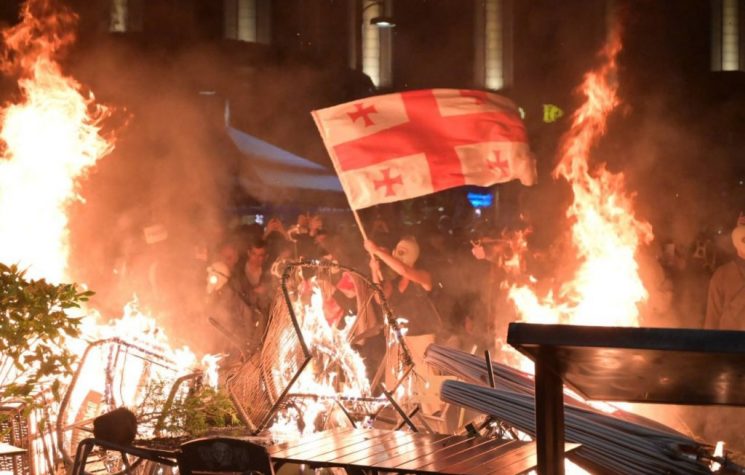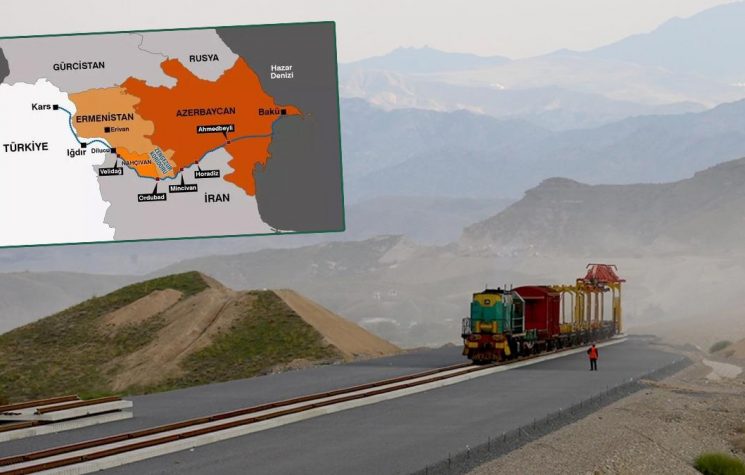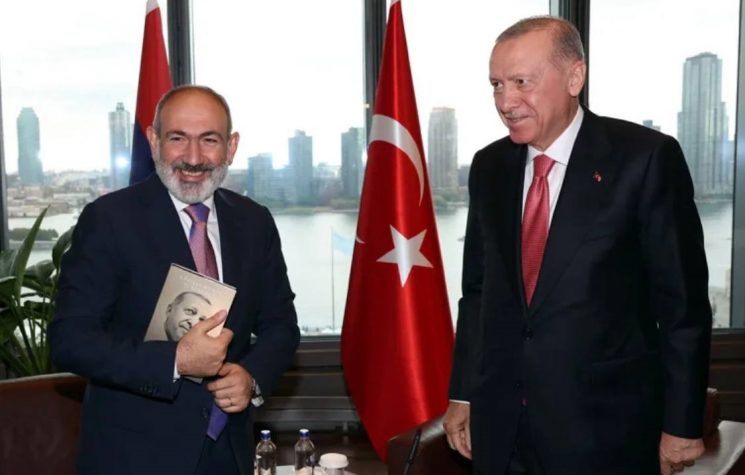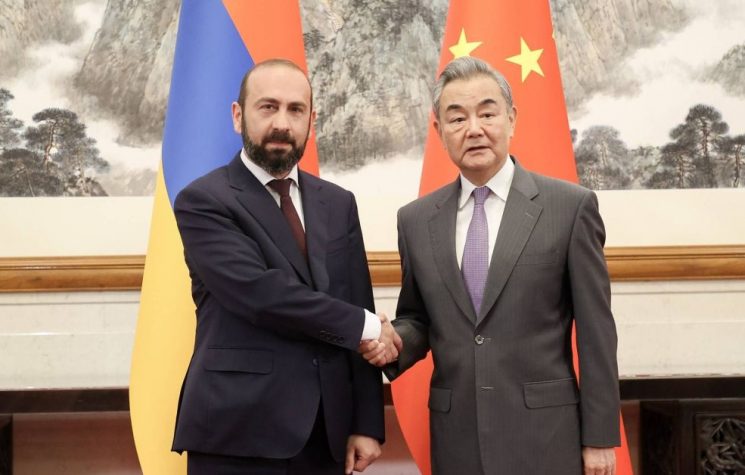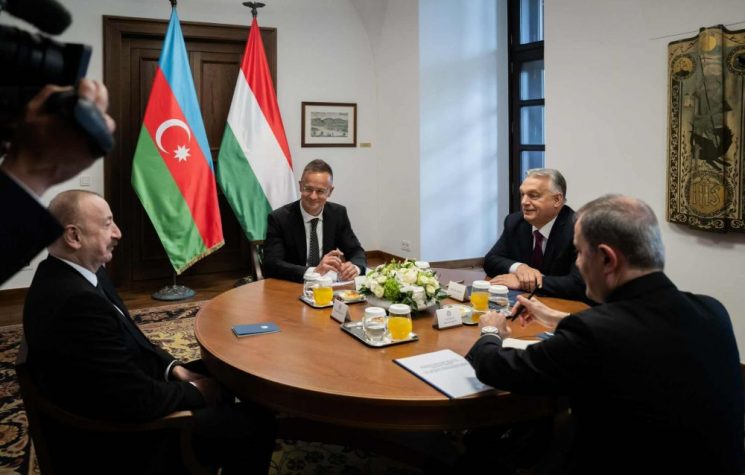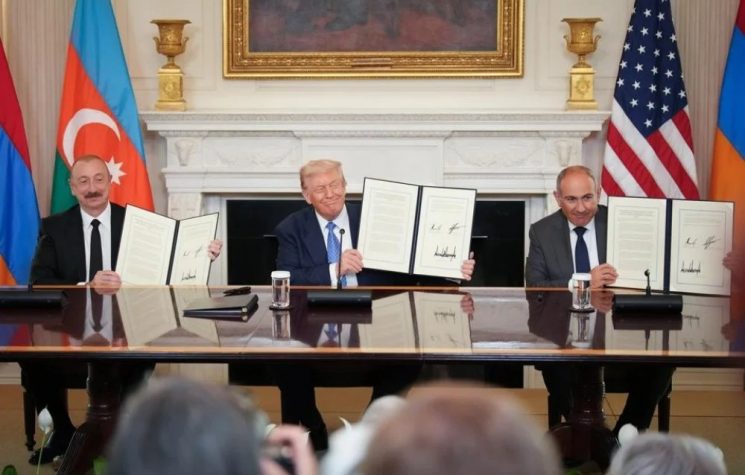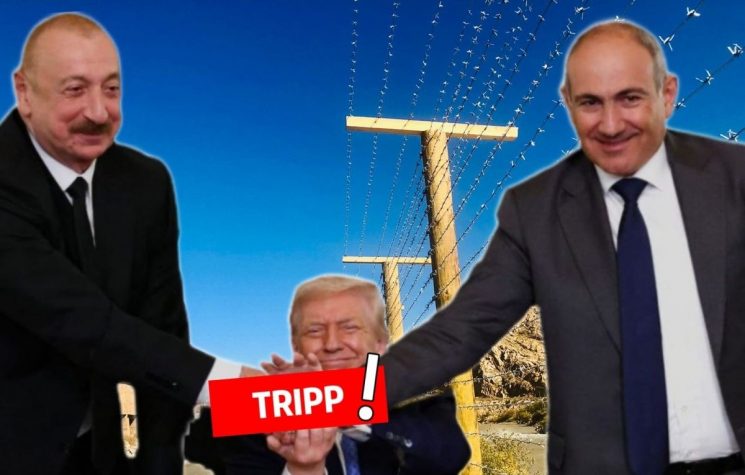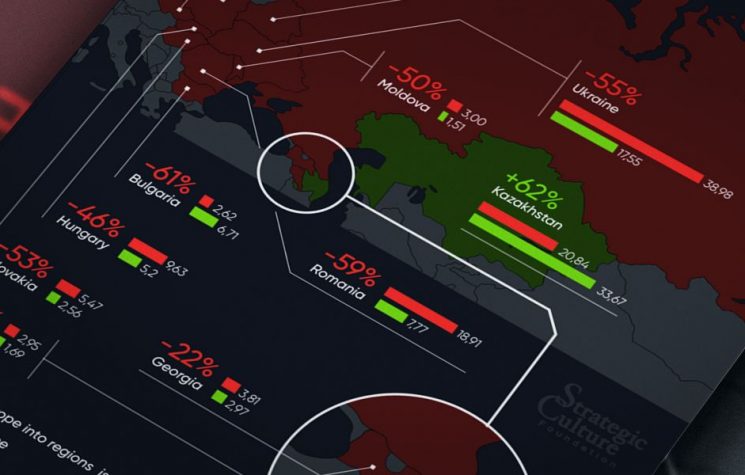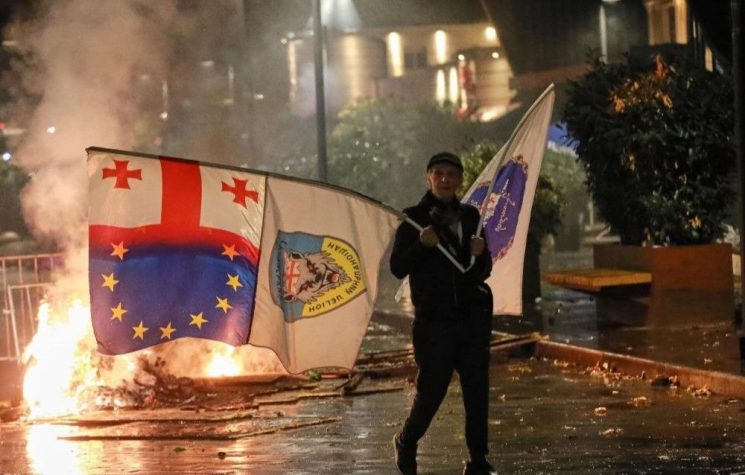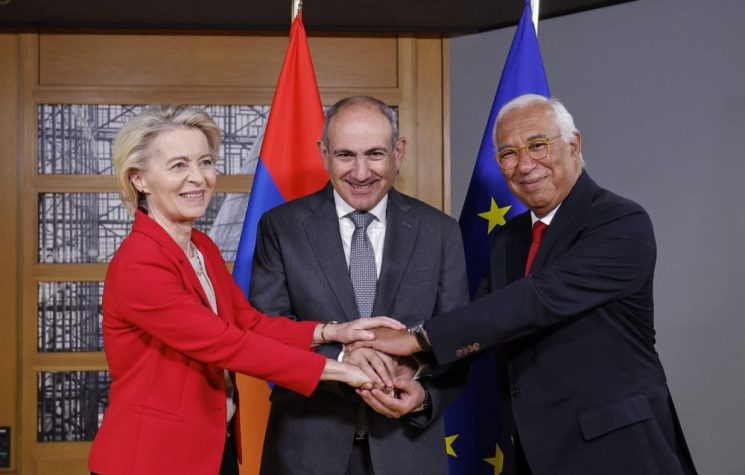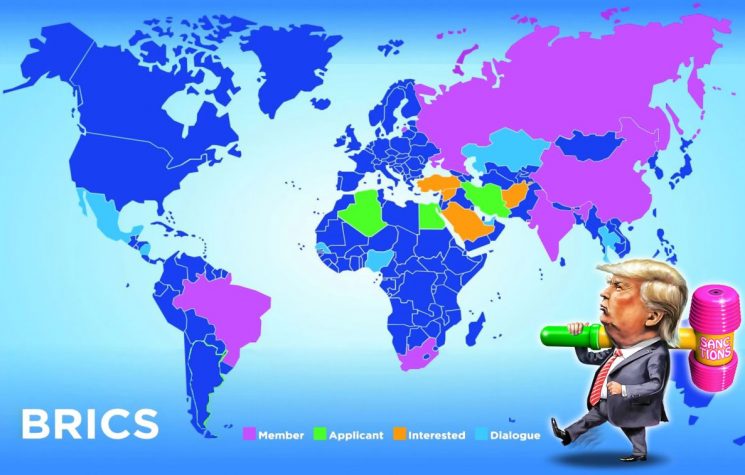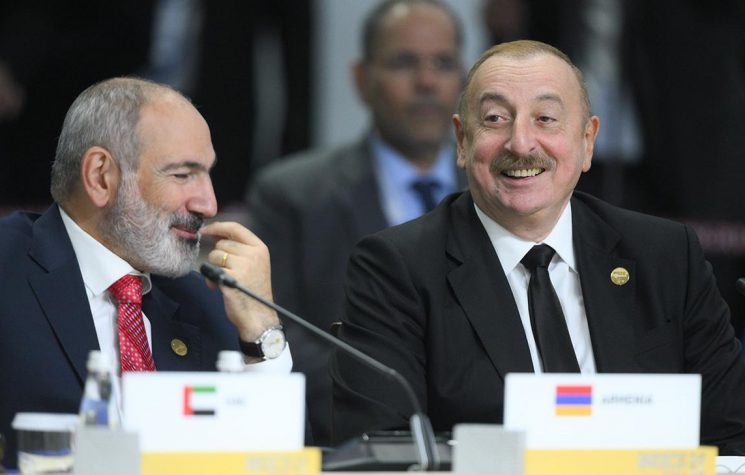Recent U.S.-mediated agreement sets the stage for the end of Armenia as a sovereign state.
Join us on Telegram![]() , Twitter
, Twitter![]() , and VK
, and VK![]() .
.
Contact us: info@strategic-culture.su
The recent signing of a “peace agreement” between Armenia and Azerbaijan, brokered by the United States, marks not only a new chapter in the Caucasus conflict but, above all, represents yet another historical humiliation for the Armenian people. More than a diplomatic defeat, the pact symbolizes the collapse of Armenian sovereignty and confirms its ongoing march toward extinction as a viable and independent state.
The so-called “Zangezur Corridor,” officially ratified in Washington with great fanfare by the Trump administration, is a land route connecting Azerbaijan to its exclave of Nakhichevan through the southern part of Armenian territory. Technically, it is a logistical corridor. Politically and geostrategically, it is the imposition of an external order in defiance of the Armenian people’s will—an assault on the country’s territorial integrity and another step toward its total submission to the Atlanticist West.
Armenian Prime Minister Nikol Pashinyan, by accepting the terms imposed by Washington and Baku, has demonstrated not only weakness but complete capitulation. His government, already marked by a string of failures—including the humiliating military defeat in Nagorno-Karabakh and the alienation of traditional allies like Russia and Iran—is now handing over yet another vital piece of national territory to the mercy of foreign powers. The so-called “peace” promoted under the name “Trump Route for International Peace and Prosperity” is nothing more than a cynical euphemism for military and economic occupation.
It’s important to underline that, even from a cold and pragmatic geopolitical perspective, the current scenario benefits everyone—except Armenia. Azerbaijan secures uninterrupted logistical access to Nakhichevan; the U.S. consolidates a direct military presence in the Caucasus under the guise of managing the route; Israel strengthens its partnership with Baku, further threatening Iranian security; and NATO, indirectly, expands its reach into one of the most strategic regions of Eurasia. Armenia, meanwhile, loses territory, displaces historical communities, and cements its international irrelevance.
Pashinyan’s irresponsibility also breaks with a longstanding diplomatic tradition crucial to regional stability. By sidelining Russia and Iran—regional powers historically committed to peace and balance in the Caucasus—Yerevan is trading real security for empty Western promises. Moscow, though momentarily focused on the Ukrainian front, remains the only actor capable of ensuring Armenia’s survival as a state. Tehran, on the other hand, views the corridor as an existential threat—not only due to its proximity to Iranian borders but also because of the growing Israeli and American presence it brings.
The refusal to pursue genuine peace under the mediation of regional actors reveals Pashinyan’s total alienation, as he seems to govern with his eyes fixed on Paris and Washington, while turning his back to the harsh reality faced by the Armenian people. His “Westernization” project has utterly failed: the promise of prosperity turned into isolation, and the European dream became a geopolitical nightmare.
The grim truth is that under Pashinyan’s leadership, Armenia is ceasing to exist as a sovereign political entity. The state is being territorially fragmented, economically occupied, and politically manipulated. The Armenian people—heirs to one of the world’s oldest Christian civilizations—are now hostages to a puppet government that insists on choosing yesterday’s enemies as today’s allies.
What remains for Armenia is to decide: will it continue its blind march toward total extinction, or will it awaken from its lethargy, remove the traitors who currently rule, and rebuild its sovereignty based on a genuine alliance with those who truly defend regional peace—rather than those seeking to replace it with NATO military bases?
And it must also be understood that any lasting peace in the region will only be achievable through negotiations between Armenia and Azerbaijan mediated by the three relevant regional actors: Russia, Iran, and Turkey—not by faraway powers like the U.S. and France.
Without a profound strategic shift, Armenia’s fate is already sealed: it will become a puppet state, without territory, without a people, and without a future.













